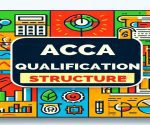
Achieving the status of Chartered Accountant (CA) is a noteworthy achievement that provides numerous opportunities in the professional world. But qualification is only the beginning of the road; it doesn’t finish there. The ability to navigate the path after completing CA leaves every student with a question in mind. What to do after CA? Questioning your career path after graduation or post-graduation is quite common, but don’t worry as this guide will address everything from employment options to personal development for what to do once you become a chartered accountant.
Career Pathways
Exploring the pathways allows CAs to make informed decisions about their careers and utilize the full value of their degree. When considering what to do after CA, there are many career paths to choose from. The career paths available to chartered accountants may lead you to explore various fields, opportunities and disciplines. The key to success for CA is to always improve their skills, learn new industry trends, and use their knowledge to acquire jobs they want, regardless of how they choose to advance in their careers. CA degree opens door for the candidate with a lot of options, some of which can seen below:
Internal Auditor
As everyone is aware, the only people authorized to audit the financial accounts of an organization are certified public accountants (CPAs). There is a constant need for CAs in the audit sector because of their demand, and it is also a sector that pays a CA a higher salary as compared to other career pathways. On the other hand, this job profile has a comparatively high level of work pressure. One can become an internal auditor for a company after passing the CA Inter.
Direct and Indirect Taxation
In certain industries, CAs are referred to as “Taxation Experts” at times. A lot of chartered accountants start out in either indirect taxation(GST and other legislation) or direct taxation (income tax). A chartered accountant’s area of practice in this profession is expanding due to the recent introduction of new tax laws in our nation.
Banking and Insurance Sector
A general accountant makes financial statements and makes sure that the financial records are up-to-date. They also look after to ensure that all the necessary laws and regulations are followed, they also help with analyzing finances of the bank and tax return preparation.
Finance Management
To benefit from CAs’ broad knowledge of the financial industry, an increasing number of businesses are seeking Qualified Chartered Accountants to manage their financial affairs. This job description is highly regarded and requires a broad variety of technical skills. One must stay current with industry trends, understand the most profitable investments, predict the company’s business, and then advise the organization on these forecasts and investments.
Starting Your Own Business
Most common answer to what to do after CA is starting your own accounting firm as it offers independence and the opportunity to choose which business you desire to work with. Your main duties will include setting up your business, obtaining the necessary permits, and effectively marketing your offerings. The challenges of becoming an entrepreneur include finding people who wanna work with and making the financial investment yourself while following the rules of taxation. There are challenges but there are many advantages like owning your business and the potential of receiving a much higher salary that companies can provide to you.
Higher Education
Taking the road to higher education will help CAs gain a thorough understanding of their field. It can also include choosing a specialization in accounting or finance to have deeper knowledge and moving forward to take higher roles in business management.
Pursuing ACCA
Pursuing ACCA (Association of Chartered Certified Accountants) after obtaining another professional qualification, such as CA (Chartered Accountancy), can significantly increase your work possibilities and international opportunities in the finance and accounting field. ACCA broadens your skill set by including international accounting concepts, financial management, and strategic corporate leadership, while CA provides you with a solid foundation in national standards and procedures. If you want to begin a career in accounting and finance, make sure to check your eligibility. You can quickly determine this using the ACCA exemption calculator available on the ACCA website
Obtaining an ACCA certificate following being a CA will help you make yourself stand out in the competition in the global workforce. The widely accepted ACCA certification also allows you to create a career abroad and work in a number of professional settings. It provides access to a broad range of positions in public accounting companies, financial institutions, and multinational corporations (MNCs).
CISA and DISA
In India, CAs are not permitted to conduct system audits unless they hold a CISA or DISA certificate. ISACA offers the CISA, an internationally recognized education, while the Institute of Chartered Accountants of India (ICAI) provides the DISA, a locally recognized degree. If you intend to conduct an information technology audit in the future, you should enroll in this course after finishing CADISA, which can only be gained by applying through a professional Chartered Accountant.
CFA (Chartered Financial Analyst)
If finance is your area of interest, the CFA program is an excellent option to follow after earning your CA degree. Investment banking, hedge funding, and portfolio management are all excellent employment choices for those who have completed both the CA and CFA programs. The scope of CA may be limited to auditing the balance sheet and providing current opinions on historical occurrences. However, the scope of CFA has been increased to include reviewing financial statements. Thus, CFA is a globally recognized course that is still given as part of a graduate-level curriculum. After graduating from high school, individuals can apply to the CFA program.
Studying Abroad
Studying overseas Gaining higher education through study abroad programs can expose students to other countries and create global prospects. Advanced courses are available in nations like the USA, UK, and Australia that significantly enhance a CA’s resume.
Maintaining Current
The accounting industry is ever-evolving, with laws and technology constantly changing. CAs should make a commitment to lifelong learning through classes, certifications, and workshops which will then allow them to learn the new knowledge that enters the accounting field.
Global Marketplaces
CAs have the opportunity to explore the global marketplaces for accounting and finance. For CAs who question what to do after CA, working overseas is one of the best options as these markets provide new and exciting chances.
Getting Ready for Global Employment
In order to enter the global workplaces, CAs must understand What is ACCA and acquire the necessary certificates, learn what the local tax regulations are for the country they want to work in, and be well-versed in international accounting standards such as IFRS.
Professional Development and Networking
Networking is essential for anyone who wants to thrive in their career. It could lead to joint ventures, job opportunities, and mentoring. Attending industry events, joining trade associations, and contributing to internet discussion boards are all ways to network. You will learn things that will benefit you in both your personal and professional lives.
CAs can join organizations like the American Institute of Certified Public Accountants (AICPA), the Institute of Chartered Accountants in England and Wales (ICAEW), and regional accounting associations for networking. These groups will help CAs in providing information, networking opportunities, and guidance.
Social Responsibility and Volunteering
Participating in charitable organizations can be rewarding and advantageous for professional advancement. It offers chances for networking and the ability to use abilities in novel situations. Having an Influence on Society By managing funds for NGOs, doing pro bono work, or supporting educational programs, chartered accountants (CAs) can use their knowledge and skills to support social causes. This improves one’s professional reputation in addition to increasing personal satisfaction.
Possession of Money
Financial Independence
CAs that possess financial skills ought to place a high priority on efficiently handling their personal accounts. Make prudent investments, set long-term financial goals, and create budgets. Investing in techniques for building wealth can be facilitated by diversifying holdings in stocks, real estate, and other assets. Insurance and retirement planning are two more essential components of financial stability.
Conclusion
If you’re a certified public accountant, you have a variety of options and routes in life at your disposal. Certified Accountants (CAs) can have fulfilling and successful careers by exploring both traditional and nontraditional employment possibilities, going back to school, developing soft skills, and keeping abreast of industry advancements. To become the greatest chartered accountant you can be, take advantage of all the opportunities for growth, development, and education.


